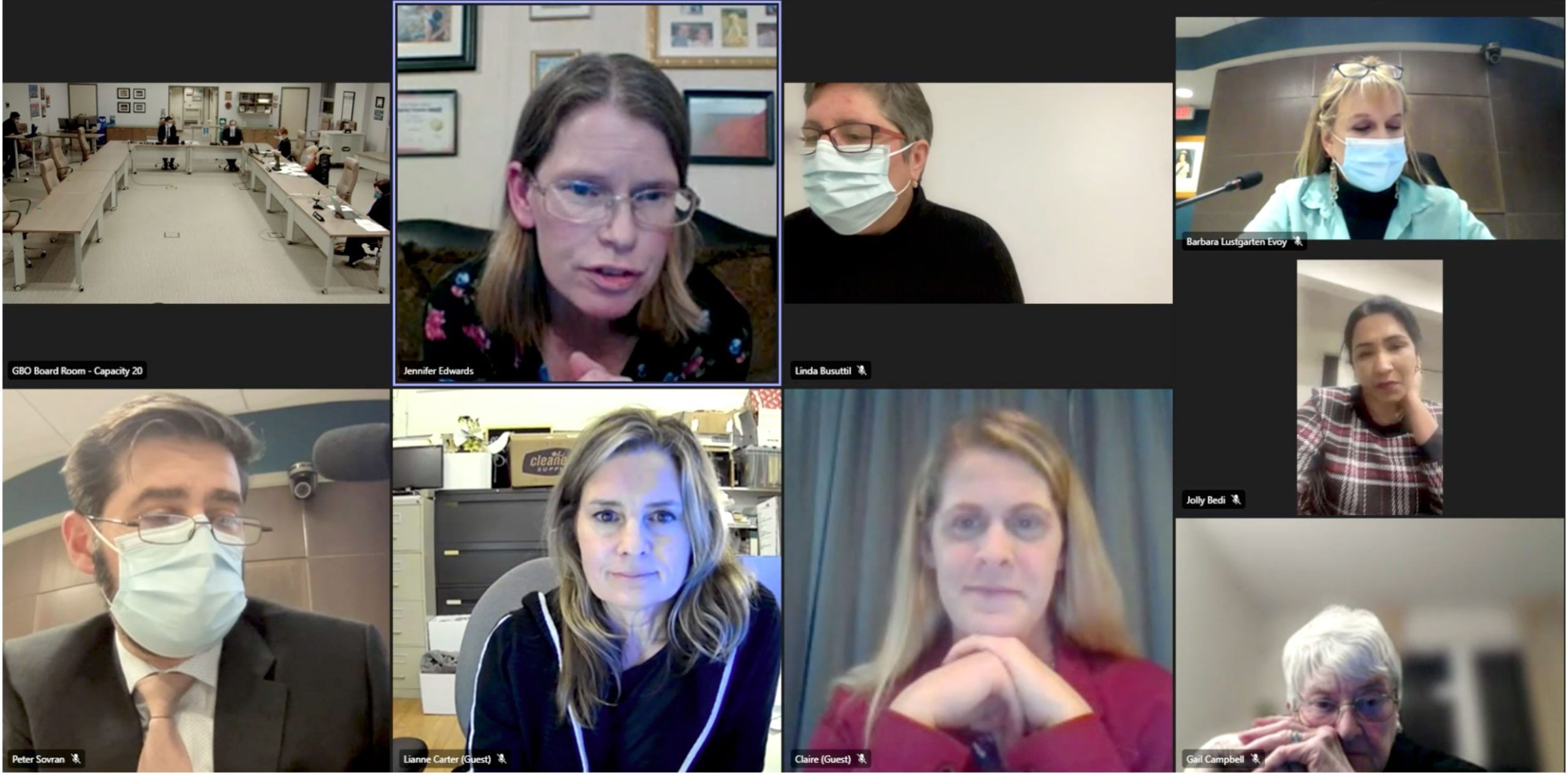WELLINGTON COUNTY – Parents calling for an additional bus route to accommodate Wellington County students enrolled in the international baccalaureate (IB) program at GCVI in Guelph have highlighted a greater issue of program inequity for rural students.
At a Feb. 22 Upper Grand District School Board (UGDSB) meeting, parent representatives Lianne Carter and Claire Upton relayed their concerns to the board, asking for re-evaluation of the current transportation system for county students enrolled in the Guelph-based program.
Currently, only students attending the program and living in GCVI’s regular catchment area are bused to school.
“Our concern is that there is 82 of approximately 425 students currently attending the GCVI IB program that live outside of Guelph,” Carter said.
“In order for these students to attend school, families must provide their own transportation and many of these families don’t even apply because they just know that they can’t offer their children transportation to and from school every day to Guelph.”
The parent group has started a petition and conducted a survey to determine how many families are affected by the lack of transportation.
Of the families surveyed, 92 per cent knew of a student affected by the transportation inequity.
“Our ask is that students throughout the board area should have equal access to transportation and equal opportunity to participate in programs being offered,” Carter explained.
“I’m all for removing barriers and accessibility for everyone and when I realized that not everyone can actually go to that program, I did feel very conflicted.”
Carter added, “It doesn’t sit well with me that there are so many kids that had to decline around me for reasons of transportation.”
UGDSB trustees expressed differing views, pointing to the larger issue of program inequity and accessibility to transportation as a whole in Wellington County.
Trustee Mark Bailey, who is an IB graduate, said for him, the geographic inequity is a huge concern.
“This is a Guelph-based program and it is meant for the entire board,” he explained.
“And if we have areas that cannot attend [IB] because of geographic circumstance, in terms of transportation not being provided, that’s a big issue.”
On the other hand, Bailey noted the school board is only funded for regular transportation and not for optional programming.
“Funding transportation for IB students would have to come from somewhere else, which is a big concern,” he said.
Bailey said he wasn’t saying no to added transportation, but his initial response was “very ambivalent.”
Trustee Jen Edwards, who represents the Guelph/Eramosa, Erin and East Garafraxa catchment areas, said she gets calls every year from families upset about the lack of transportation.
“You’re already paying the cost to go there and then there’s a transportation cost, so there’s inequities right there,” Edwards explained.
“It’s very difficult for parents to get there and it’s an ongoing thing we’ve been hearing for a long time.”
‘It’s not even a dream in this part of the county’
Trustee Robin Ross, who represents Wellington North, Minto and Mapleton, said she has a very different perspective on the transportation issue, because the program isn’t even attainable for families in her catchment area.
“It is over 70 kilometres for students to go one way – it is not even close to being within reason for families to send kids [there],” Ross explained.
“The IB program is seen as a very elitist program in this school board that only has spaces for people that live in large communities and have enough money to drive their kids there.”
She added, “It is not something that’s requested by parents in my area because they don’t even have a hope of ever getting a kid there.”
Ross acknowledged the inequity issue of transportation in the IB program but noted the presentation doesn’t look at the extent of the inequity.
“It’s a very focused inequity to people who see this already as an option and not of the people who have no hope of ever thinking about doing it,” she said.
Students are taking an hour-long bus ride as early as the age of four to get to French immersion, she noted, and that’s still within Wellington County.
“The idea of sending kids that far for a specialized program, it’s not even on the radar for many people in my community,” she stressed.
“It’s not even a dream in this part of the county, this part of the school board, because the requirements to get in are so out of reach.”
Ross agreed transportation doesn’t meet the demands of rural students but noted even if a bus was added, asking kids to be on a bus for over two hours each way is not going to put more students on a bus from her area.
“If we’re going to look at the problem, I think we need to look at it at a different way,” she said.
“Not just adding more bus routes because that is not really going to make an equitable program, at least not from my point of view.”
Trustee Linda Busuttil noted the IB program, when first developed, was to be provided without transportation, with only students that regularly attend GCVI having access to it.
“Whatever decisions we make … there are implications system-wide for enrolment, schools and elsewhere,” Busuttil explained.
“It’s not a matter of one solution,” she added. “It has to be a comprehensive system wide solution because if you say ‘yes’ to one, it means ‘no’ and has potential implications elsewhere in the system.
“So if we make those decisions we have to make those decisions wide eyed, open and understand and embrace those potential things.”
Trustees received the delegation for information and Busuttil said the board will work to have planning staff look at the issue system-wide as it goes through future planning processes.




